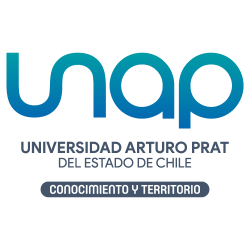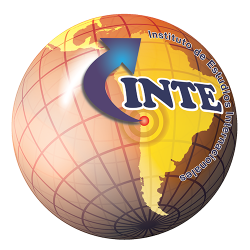Challenging the migration regime in Iquique
Practices of resistance from civil society
DOI:
https://doi.org/10.61303/07190948.v23i.1092Keywords:
civil society organisation, migration regime, practices of resistanceAbstract
In the city of Iquique, in northern Chile, new features can currently be identified regarding the phenomenon of migration. This is due to the entry of migrants through unauthorised border crossings, which has mainly occurred since the closure of the borders by law during the Covid-19 pandemic. Taking into account that global migration regimes share similar dynamics in different geographical locations, but encounter a variety of local processes, this article seeks to analyse the specific form that the migration regime has taken in this particular local context. The article explores how civil society organisations challenge the migration regime at the local level, identifying various practices of resistance. For this particular study, six problem-focused interviews were conducted with people who form part of civil society organisations involved in migrants' struggles in the aforementioned city. The testimonies gathered indicate that the migration regime is being challenged at the local level through diverse practices of solidarity and collective resistance by civil society at the grass-roots level, and that the types of resistance that have been adopted have different transformative effects that influence migration policies.
Downloads
References
Aedo, A. (2017). Encarnando (in)seguridad. Orden policial y política de la presencia en la frontera norte de Chile. Antípoda. Revista de Antropología y Arqueología, (29), 87-103.
Bigo, D. (2006). Security, exception, ban and surveillance. En D. Lyon (ed.), Theorizing Surveillance: The Panopticon and Beyond (pp. 46-68). Londres: William Publishing.
Butler, M., Mecheril, P. y Brenningmeyer, L. (2017). Introduction. Coming to terms. On the aum and scope of this volume. En M. Butler, P. Mecheril y L. Brenningmeyer (eds.), Resistance: Subjects, Representations, Contexts (pp. 7-15). Bielefeld: transcript Verlag.
Canales, A. (2018). Nueva era de las migraciones en Chile. De la diferenciación migratoria a la desigualdad social. En R. Baeniner (ed.), Migrações Sul-Sul (pp. 37-53). Campinas: Núcleo de Estudos de População.
Casas-Cortés, M., Cobarrubias, S., De Genova, N., Garelli, G., Grappi, G., Heller, C., Hess, S., Kasparek, B., Mezzadra, S., Neilson, B., Peano, I., Pezzani, L., Pickles, J., Rahola, F., Riedner, L., Scheel, S. y Tazzioli, M. (2015). New keywords: Migration and borders. Cultural Studies, 29(1), 55-87. DOI: https://doi.org/10.1080/09502386.2014.891630
Concha, S. (2018). Propuestas para regular las migraciones en Chile y la obstinación del securitismo. URVIO. Revista Latinoamericana de Estudios de Seguridad, (23), 110-126. DOI: 10.17141/urvio.23.2018.3571
Cordero, B., Mezzadra, S. y Varela, A. (2019). Introducción. Pensar América Latina desde la perspectiva de la autonomía de las migraciones. En S. Mezzadra, B. Cordero, B. y A.Varela (eds.), América Latina en movimiento: migraciones, límites a la movilidad y sus desbordamientos (pp. 9-25). México: Traficantes de Sueños.
Charmaz, K. (2004). The search for meanings. Grounded theory. En J. Smith, R. Harré y L. Van Langenhove (eds.), Rethinking Methods in Psychology (pp. 27-50). Londres: SAGE Publications.
Chile, Ministerio del Interior y Seguridad Pública (2021). Ley 21325. Ley de Migración y Extranjería. 11 de abril de 2021. D.O. 18.08.2023.
Chile Atiende. (2022). Nueva Ley de Migración. Recuperado de https://www.chileatiende.gob.cl/fichas/91505-nueva-ley-de-migraciones
De Genova, N. (2013). Spectacles of migrant ‘illegality’: the scene of exclusion, the obscene of inclusion. Ethnic and Racial Studies, 36(7), 1180-1198. DOI: https://doi.org/10.1080/01419870.2013.783710
Dufraix, R., Navarro, R. y Ramos, R. (2021). Informe en Derecho: el delito de tráfico ilícito de migrantes. Informe legal elaborado a solicitud de la Defensoría Pública de la Región de Antofagasta, en relación al caso RIT 4793-2021 de la Corte de Garantía de Calama , RUC 2100841860-5, RUD CLM-01663-21.
Deutsche Welle (DW). (31 de febrero de 2022). Chile: protestan contra migrantes irregulares en Iquique. Deutsche Welle. Recuperado de https://www.dw.com/es/chile-protestan-contra-migrantes-irregulares-en-iquique/a-60605627
Ebensperger, L. (26 de septiembre de 2021). Plaza Brasil. La Estrella de Iquique. Recuperado de https://twitter.com/Luzebensperger/status/1442103497810456580
Ebert, M. (20 de febrero de 2022). Mit dem Baby durch die Wüste. Tagesschau.
Fernández-Bessa, C. (2019). A theoretical typology of border activism: From the streets to the Council. Theoretical Criminology, 23(2), 156-174. DOI: 1177/1362480619827522
Foucault, M. (1978). Histoire de la sexualité 1: La volonté de savoir. Luxemburgo: Messageries DÜ Livre.
Glaser, B. y Strauss, A. (2010). Grounded Theory: Strategien qualitativer Forschung. Berna: Hogrefe AG.
González, S. (2007). La emergencia de la triple-frontera andina: Perú, Bolivia y Chile. En S. González, G. Aranda, J. Morandé y O. Stahringer (eds.), La integración y el desarrollo social fronterizo (pp. 15-54). Bogotá: Convenio Andrés Bello.
González, S. (2009). El Norte Grande de Chile: la definición histórica de sus límites, zonas y líneas de fronteras, y la importancia de las ciudades como geosímbolos fronterizos. Revista Historia Social y de las Mentalidades, 13(2), 12-37.
Hess, S. (2017). Border crossing as act of resistance. The autonomy of migration as theoretical intervention into border studies. En M. Butler, P. Mecheril y L. Brenningmeyer (eds.), Resistance: Subjects, Representations, Contexts (pp. 87-100). Bielefeld: transcript Verlag.
Instituto Nacional de Estadísticas (INE) (2020). Estimación de personas extranjeras residentes habituales en Chile al 31 de diciembre 2019. Informe Técnico.
Instituto Nacional de Estadísticas (INE) (2021). Estimación de personas extranjeras residentes habituales en Chile al 31 de diciembre de 2020. Informe Metodológico.
Isin, E. (2008). Theorizing acts of citizenship. En E. Isin y G. Nielsen (eds.), Acts of Citizenship (pp. 14-43). Londres: Palgrave Macmillan.
Isin, E. y Nielsen, G. (2008). Acts of Citizenship. Londres: Palgrave Macmillan.
Joiko, S. y Cortés, A. (2022). Jerarquías, asimilacionismo y resistencias Experiencias migratorias en el campo escolar del Norte Grande de Chile. Psicoperspectivas, 21(1). DOI: 10.5027/psicoperspectivas-vol21-issue1-fulltext-2525
Liberona, N. (2015). La frontera cedazo y el desierto como aliado: prácticas institucionales racistas en el ingreso a Chile. Polis (Santiago), 14(42), 143-65. DOI: 10.4067/S0718-65682015000300008
Lilja, M. y Vinthagen, S. (2018). Dispersed resistance: unpacking the spectrum and properties of glaring and everyday resistance. Journal of Political Power, 11(2), 211-229, DOI: 10.1080/2158379X.2018.1478642
Mezzadra, S. (2012). Capitalismo, migraciones y luchas sociales. La mirada de la autonomía. Nueva Sociedad, (237), enero-febrero, 159-178.
Nyers, P. y Rygiel, K. (2012). Citizenship, Migrant Activism and the Politics of Movement. Londres: Routledge.
Ovando, C. y Ramos, R. (2016). Frontera e imaginarios geográficos en torno a la franja fronteriza de Tarapacá: el Estado y los habitantes/migrantes. Revista Electrónica de Geografía y Ciencias Sociales, 20(529), 741-798.
Oyarzo, C. (6 de octubre de 2021). La fuerza de los activismos: redes de apoyo a migrantes en Iquique. Edición Cero. Recuperado de https://edicioncero.cl/2021/10/la-fuerza-de-los-activismos-redes-de-apoyo-a-migrantes-en-iquique/
Papadopoulos, D., Stephenson, N. y Tsianos, V. (2008). Escape Routes. Control and Subversion in the Twenty-first Century. Londres: Pluto Press.
Portes, A. (2001). Inmigración y metrópolis: reflexiones acerca de la historia urbana. Migraciones Internacionales, 1(1), 111-134.
Quinteros, D., Dufraix, R. y Ramos, R. (2019). Human trafficking cases in Chile: challenges for reducing the “dark figure”. En J. Winterdyk y J. Jones (eds.), The Palgrave International Handbook of Human Trafficking (pp. 1151-1164). Basingstoke/Hampshire: Palgrave Macmillan, Cham. DOI: 10.1007/978-3-319-63192-9_105-1
R4V (Inter-Agency Coordination Platform for Refugees and Migrants from Venezuela). (2022). Regional Refugee and Migrant Response Plan (RMRP). [En línea]. Recuperado de https://reliefweb.int/sites/reliefweb.int/files/resources/
RMRP%25202022_FV1_web.pdf
Saunders, N. y Al-Om. T. (2022). Slow resistance: Resisting the slow violence of asylum. Millennium: Journal of International Studies, 50(2), 524-547 DOI: 10.1177/03058298211066339
Schilliger, S. (2020). Challenging who counts as a citizen. The infrastructure of solidarity contesting racial profiling in Switzerland. Citizenship Studies, 24(4), 530-547. DOI: 10.1080/13621025.2020.1755176
Scheel, S. (2013a). Studying embodied encounters: Autonomy of migration beyond its romanticization. Postcolonial Studies, 16(3), 279-288.
Scheel, S. (2013b). Autonomy of migration despite its securitisation? Facing the terms and conditions of biometric rebordering. Millennium. Journal of International Studies, 41(3), 575-600.
Scheel, S. (2015). Das konzept der autonomie der migration überdenken? Yes, please!, movements. Journal für kritische Migrations- und Grenzregimeforschung, 1(2), 1-15.
Sciortino, G. (2004). Between phantoms and necessary evils. Some critical points in the study of irregular migration to Western Europe. IMIS-Beiträge. Migration and the Regulation of Social Integration, 24, 17-43.
Scott, J. (1985). Weapons of the Weak: Everyday Forms of Peasant Resistance. New Haven: Yale University Press.
Servicio Jesuita a Migrantes (SJM) (2021). Ingreso por paso no habilitado en 2021 llega a su máximo histórico. Servicio Jesuita a Migrantes [sitio web]. Recuperado de https://sjmchile.org/2021/09/06/ingreso-por-paso-no-habilitado-en-2021-llega-a-su-maximo-historico/
Stang, F. (2016). De la Doctrina de la Seguridad Nacional a la gobernabilidad migratoria: la idea de seguridad en la normativa migratoria chilena, 1975-2014. Polis, 15(44), 83-107. DOI: 10.4067/S0718-65682016000200005
Stang, F. y Stefoni, C. (2016). La microfísica de las fronteras. Criminalización, racialización y expulsabilidad de los migrantes colombianos en Antofagasta, Chile. Astrolabio, (17), 42-80.
Stefoni, C., Jaramillo, M., Urzúa, A., Macaya, G., Palma, J., Bravo, A. y Díaz, C. (2022). Informe. Necesidades humanitarias. Personas venezolanas con ingreso reciente a Chile. Centro de Estudios de Conflicto y Cohesión Social (COES).
Tapia, M. (2022). ¿Qué ha pasado en un año para entender la crisis humanitaria que vivimos en Tarapacá? Observatorio Transfronterizo [sitio web de la Universidad Arturo Prat]. Recuperado de https://drive.google.com/file/d/1j1QC38oYAqnnHGJoOzFo50sGXUPb026d/view
Tapia, M. y Dinamarca, M. (29 de septiembre de 2021). Las personas en el centro: crisis migratoria en Tarapacá. El Mostrador. Recuperado de https://www.elmostrador.cl/noticias/opinion/columnas/2021/09/29/las-personas-en-el-centro-crisis-migratoria-en-tarapaca/
Thayer, E. y Stang, F. (2017). Estatus legal precario y condicionalidad en el acceso a derechos: una aproximación a la regulación migratoria de Argentina y Canadá. Si Somos Americanos. Revista de Estudios Transfronterizos, 16(2), 11-43.
Tijoux, M. (2016). Racismo en Chile: la piel como marca de la inmigración. Santiago: Editorial Universitaria.
Witzel, A. (2000). Das problemzentrierte Interview. FQS. Forum Qualitative Sozialforschung, 1(1), Art. 22.
Downloads
Published
How to Cite
Issue
Section
License
Copyright (c) 2023 Si Somos Americanos. Revista de Estudios Transfronterizos

This work is licensed under a Creative Commons Attribution 4.0 International License.
Authors who publish in Si Somos Americanos agree to the following terms:
- Authors retain copyright and grant the journal right of first publication with the work simultaneously licensed under a Creative Commons Attribution License 4.0 (CC BY 4.0) that allows others to share the work with an acknowledgement of the work's authorship and initial publication in this journal.
- Authors are able to enter into separate, additional contractual arrangements for the non-exclusive distribution of the journal's published version of the work (e.g., post it to an institutional repository, website or publish it in a book), with an acknowledgement of its initial publication in Si Somos Americanos.
- Authors are permitted and encouraged to post their work online (e.g., in institutional repositories or on their website) after the work has been published in Si Somos Americanos.







